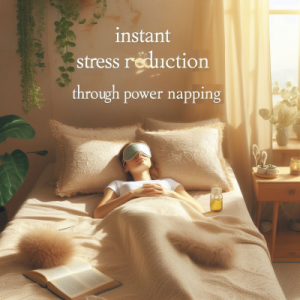You might not realize that just a few minutes of focused breathing can greatly lower your stress levels and improve your mood. While it’s easy to feel overwhelmed by daily pressures, there are simple techniques you can implement right away to help you chill out. From mindfulness practices to quick physical exercises, these methods not only promote relaxation but also enhance your overall well-being. If you’re curious about how to integrate these stress-reducing strategies into your life, you’ll want to explore the various options available.
Breathing Techniques
 When it comes to managing stress, many people find that simple breathing techniques can make a significant difference. Two effective methods you can try are diaphragmatic breathing and box breathing. Both techniques are easy to learn and can be practiced anywhere, anytime, making them perfect for your busy life.
When it comes to managing stress, many people find that simple breathing techniques can make a significant difference. Two effective methods you can try are diaphragmatic breathing and box breathing. Both techniques are easy to learn and can be practiced anywhere, anytime, making them perfect for your busy life.
Diaphragmatic breathing, also known as abdominal or deep breathing, involves engaging your diaphragm fully. To practice this technique, sit or lie down comfortably. Place one hand on your chest and the other on your abdomen. Inhale deeply through your nose, allowing your abdomen to rise as you fill your lungs. Exhale slowly through your mouth, feeling your abdomen fall. This method helps lower your heart rate, reduces tension, and promotes relaxation.
Box breathing is another powerful technique that involves a structured pattern of inhaling, holding, exhaling, and holding again. Picture a box: inhale through your nose for a count of four, hold your breath for another count of four, exhale through your mouth for four, and then hold your breath again for four.
Repeat this cycle several times. Box breathing is particularly useful for calming your mind and focusing your thoughts.
Mindfulness Practices
How can you cultivate a sense of calm and presence in your daily life? Mindfulness practices offer a powerful way to ground yourself amid the chaos. One effective method is mindful eating. Instead of rushing through meals, take time to savor each bite. Focus on the flavors, textures, and aromas of your food. This simple shift not only enhances your appreciation for what you eat but also helps reduce stress by bringing your attention to the present moment.
Another impactful practice is gratitude journaling. Set aside a few minutes each day to jot down three things you’re thankful for. This exercise encourages you to reflect on positive aspects of your life, shifting your focus away from stressors. By recognizing what you’re grateful for, you can cultivate a more optimistic mindset, even during challenging times.
Incorporating these mindfulness practices into your routine doesn’t have to be time-consuming. You can enjoy mindful eating during lunch breaks or while preparing dinner.
Similarly, gratitude journaling can be done first thing in the morning or just before bed. The key is consistency; even a few minutes daily can make a significant difference in your overall sense of well-being.
Quick Physical Exercises
Incorporating quick physical exercises into your day can greatly boost your mood and energy levels. You don’t need a gym membership or extensive workout routines to make a difference. Just a few minutes of movement can help alleviate stress and improve your body awareness, allowing you to feel more connected to yourself.
Start by setting aside time for stretch breaks. These can be as simple as reaching for the sky or bending down to touch your toes. Stretching helps release tension in your muscles and encourages better circulation.
Try to incorporate these breaks every hour, especially if you’re sitting for long periods. A quick neck roll or shoulder shrug can work wonders to relieve built-up stress.
Consider adding a few bodyweight exercises to your routine. A set of jumping jacks or squats can get your heart rate up and invigorate your mind.
Even a brief walk around your home or office can help clear your head and shift your perspective. The key here is consistency; the more you move, the more you’ll notice the positive effects on your mood.
Don’t underestimate the power of quick physical exercises. They’re not just about fitness; they’re about fostering a deeper connection with your body and enhancing your overall well-being.
Nature Connection
Many people find that connecting with nature can greatly enhance their well-being. Engaging in nature walks is one of the simplest ways to immerse yourself in the beauty around you. Just stepping outside and taking a leisurely stroll through a park or forest can refresh your mind and body. As you breathe in the fresh air and listen to the rustling leaves, you’ll feel your stress start to melt away.
Outdoor activities, whether hiking, biking, or even picnicking, allow you to break free from your daily routine and reconnect with your surroundings. These experiences can boost your mood and help you gain a new perspective on life.
If you prefer a more hands-on approach, consider exploring the gardening benefits. Tending to plants can provide a therapeutic escape. Digging in the soil, nurturing seedlings, and watching them grow can be deeply satisfying.
Plus, gardening encourages physical activity, which is essential for maintaining a healthy mind and body.
Don’t forget the joy of wildlife observation. Taking time to watch birds, squirrels, and other creatures can be a delightful way to practice mindfulness. You’ll find that focusing on their movements and behaviors pulls you into the present moment, allowing you to set aside worries.
Simple Meditation
Amid the hustle and bustle of daily life, simple meditation can serve as a powerful tool for reducing stress and fostering inner peace. You don’t need to be an expert or spend hours on the practice; even a few minutes can make a significant difference.
Start by finding a quiet space where you won’t be disturbed. Sit comfortably, close your eyes, and take a deep breath. Focus on your breath as it flows in and out, allowing tension to melt away.
One effective technique is guided visualization. Picture a serene place—maybe a lush forest or a tranquil beach. As you immerse yourself in this mental image, engage your senses. Hear the waves, feel the sun on your skin, and smell the fresh air. This vivid imagery can transport you away from stressors, providing instant relief.
Another method you might find helpful is mantra repetition. Choose a word or phrase that resonates with you, such as “peace” or “calm.” As you breathe deeply, repeat your mantra silently or aloud. This practice helps anchor your thoughts and reduces the mental chatter that often contributes to anxiety.
Aromatherapy Benefits
While you might be seeking quick ways to alleviate stress, aromatherapy offers a delightful and effective approach. By harnessing the power of essential oils, you can transform your environment and enhance your overall well-being. The olfactory impact of scents can evoke powerful emotions and memories, tapping into your scent memory to trigger feelings of calm and contentment.
Integrating aromatherapy into your relaxation rituals is simple. You can use a diffuser to disperse therapeutic blends throughout your space or apply diluted essential oils directly to your skin. Scents like lavender and chamomile are known for their mood enhancement properties, helping you unwind after a long day.
Peppermint and citrus oils can invigorate your senses, boosting your energy and focus.
Whether you’re at home or on the go, carrying a small bottle of your favorite essential oil can provide instant relief during stressful moments. Just a whiff can help reset your mood, making it easier to handle challenges.
Experiment with different blends to discover what resonates with you.
Digital Detox Strategies
After enjoying the calming effects of aromatherapy, consider how a digital detox can further enhance your relaxation.
In today’s fast-paced world, excessive screen time and constant social media notifications can contribute greatly to your stress levels. Taking a break from these distractions allows you to reconnect with yourself and the world around you.
Here are some simple digital detox strategies you can implement:
-
Set Boundaries: Designate specific times during the day to check your phone or social media. This helps create a healthy balance and reduces impulsive scrolling.
-
Unplug Completely: Choose one day a week to go completely offline. Use this time to engage in activities that nourish your mind and body, like reading a book, going for a walk, or practicing mindfulness.
-
Create Tech-Free Zones: Establish areas in your home where devices aren’t allowed, such as the bedroom or dining room. This encourages more meaningful interactions and restful moments.
Conclusion
In today’s fast-paced world, finding moments to chill out is essential. By incorporating breathing techniques, mindfulness practices, and a bit of nature into your daily routine, you can instantly reduce stress and boost your well-being. Imagine swapping your smartphone for a refreshing change—it’s a game changer! Don’t underestimate the power of simple meditation and aromatherapy, either. Embrace these easy strategies, and you’ll navigate life with a clearer mind and a lighter heart.





